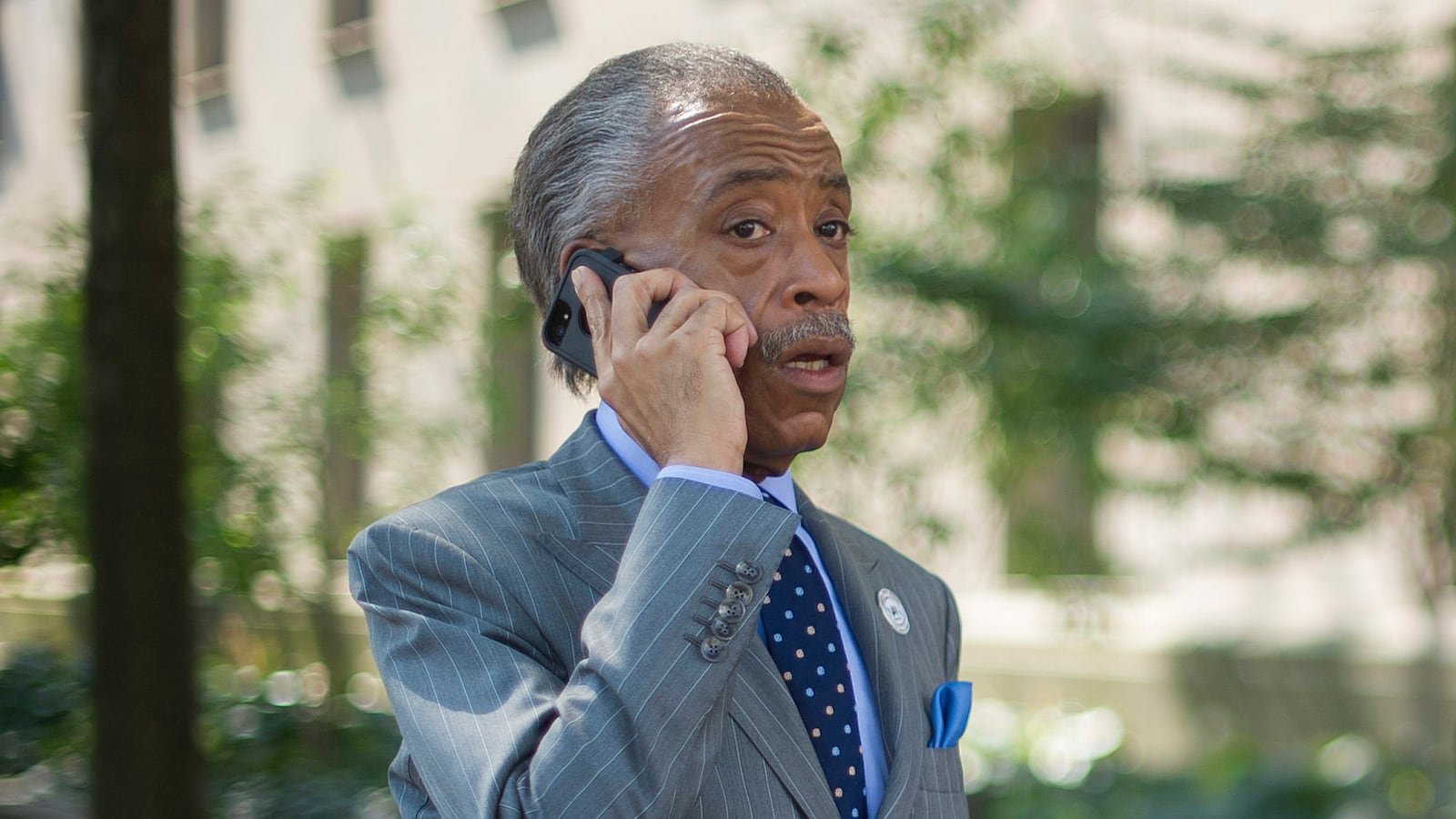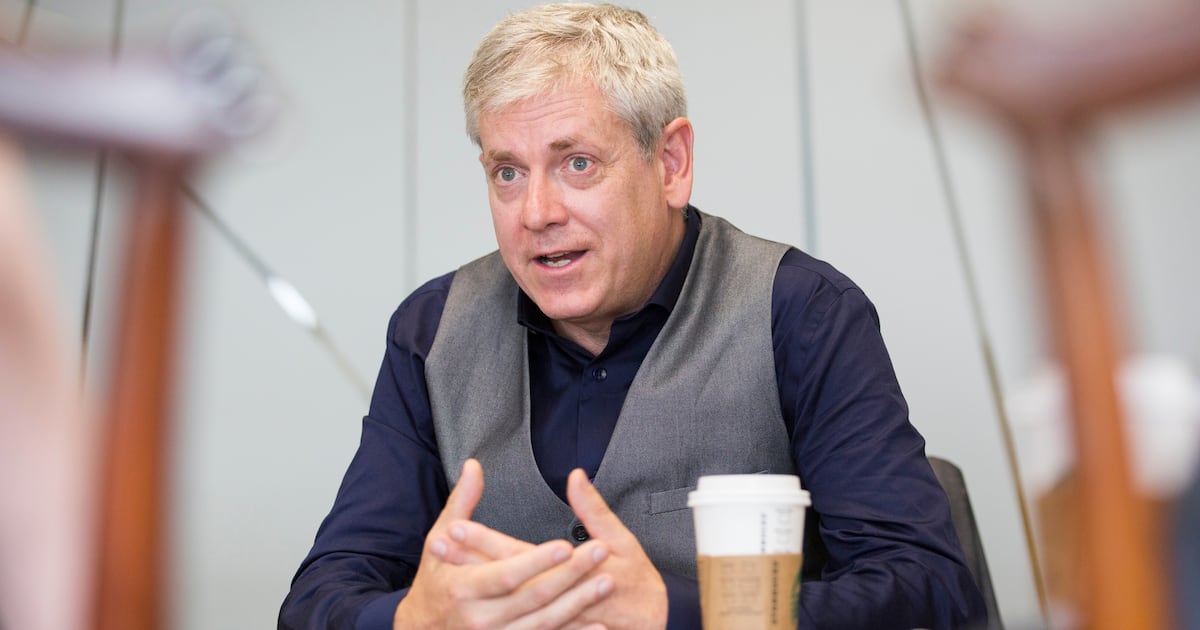Rev. Al Sharpton was striding into the West Wing of the White House for a meeting with President Obama on Wednesday when his cellphone rang.
“Al?” the caller asked.
“Yeah,” Sharpton said.
“It’s Bill de Blasio.”
That being the mayor of New York, who was calling to inform Sharpton that New York City Police Department Commissioner Bill Bratton was appointing Benjamin Tucker as the NYPD’s new first deputy commissioner. The spot had been offered to Chief of Department Phil Banks, who turned it down and retired. Banks is black, as is Tucker.
“I wanted you to know,” de Blasio said by Sharpton’s recollection.
“He’s already appointing him?” Sharpton asked.
“Yeah,” de Blasio replied.
“Good,” Sharpton said.
Sharpton noted that otherwise some of their mutual detractors might suggest that he had played a role in the appointment.
“They’ll probably say it anyway,” de Blasio said.
“By the way, I am walking into the West Wing,” Sharpton said. “I will tell the president hello.”
“We’ve both ended up where our lives have taken us,” de Blasio said.
De Blasio went back to running the city. Sharpton proceeded inside to join three other national civil-rights leaders in an hour-long meeting with the president. They were to discuss Obama’s plans for what Sharpton describes as “his fourth quarter.”
Up in New York, some detractors were indeed suggesting that Sharpton had helped determine who would be the next first deputy police commissioner. Sharpton would later emphasize to The Daily Beast that he neither possesses nor desires such power.
“People think I’m running the NYPD,” Sharpton would say. “It’s like a demotion to me.”
Sharpton would add that many New Yorkers, being New Yorkers, consider him a city leader. That includes another recent caller.
“Al,” this caller began, by Sharpton’s recollection.
“Yeah?” Sharpton said.
“Governor,” the caller said.
“Governor who?” Sharpton asked.
“Andrew,” the caller said.
That being Gov. Andrew Cuomo of New York.
“There’s 50 governors,” Sharpton told him.
New York may be the center of the known world, but it is also the center from which Sharpton’s aspirations extend beyond the Hudson River to that wild and crazy land known as America. His ambitions have always been national, at least as far back as his first visit to the White House back in 1982, when the Godfather of Soul took him to see the president of the United States.
Sharpton had then been seeking to have Martin Luther King’s birthday declared a national holiday and James Brown had agreed to arrange a meeting with President Reagan. Brown had been Sharpton’s mentor and role model, even taking him to his hairdresser’s and saying, “Make him look like me!”
In exchange for the meeting with Reagan, Brown got Sharpton to make a promise. Sharpton agreed that he would maintain their shared hairstyle as long as Brown was alive, a pledge that must have had its trying moments during the years when the all-natural Afro assumed a political meaning.
By the time of Brown’s death in 2006, Sharpton had made the style his own. He also had adopted a new role model, the Rev. Jesse Jackson, who turned Operation PUSH into a national organization and became a TV commentator on CNN. Sharpton did not name his organization the New York Action Network. The name is the National Action Network (NAN.) And he is a commentator on MSNBC.
As the head of NAN, Sharpton met with Obama the day after Democrats’ disastrous midterm elections. The heads of the NAACP, the Urban League, and the Legal Defense Fund were also there to discuss immigration and other pressing issues. Obama seemed as unperturbed as ever, even by the previous day’s Republican sweep.
“No ups, no downs” Sharpton says. “Just keep it even.”
Perhaps part of what steadied everybody at the meeting was the knowledge of how far the country has come by a much bigger measure. Sharpton’s mother, Ada, had been raised in the Alabama town of Dothan, where she had not even been allowed to vote. The letters of condolence when she died in March at the age of 87 included one from an African American who had become president.
“That’s a lot of progress… in one lifetime,” Sharpton says.
And however mindful he is of how much still needs to be done, Sharpton is aware of other great strides for women and for gays. He tries to imagine what he would have said back in his days at Tilden High School in Brooklyn if somebody had told him that in the not so distant future there would be same-sex marriages. And something else would have surprised the teenage Al.
“I would support it,” Sharpton says.
He includes himself in the changes over these remarkable years, saying that he has learned from his mistakes and failings, a few of which were bigger than small. He adds that some people who have taught him the most have shortcomings of their own.
As for Sharpton and the NYPD and the police nationally, you can only hope that along with reviling the brutal and racist few he will come to honor the many officers who routinely race into mortal danger for the sake of people of all persuasions.
A harrowing video shows an NYPD cop applying a fatal chokehold to a Staten Island man who was being arrested for allegedly selling loose cigarettes. But there is another cop who spent his off-duty hours coaching that same man’s son in basketball. The son has gone on to college with a basketball scholarship.
At the heart of the transformation of his native New York into the safest big city in America is not the Broken Windows theory, but the NYPD rousing itself to treat violent crime in the city’s poorest neighborhoods as seriously as it always had in its richest.
Meanwhile, to the exasperation and outrage of his detractors and no doubt smiles of his supporters, history includes a moment after the big midterm elections when Rev. Al Sharpton got a call from the mayor of New York as he walked into the West Wing to see the president of the United States.






